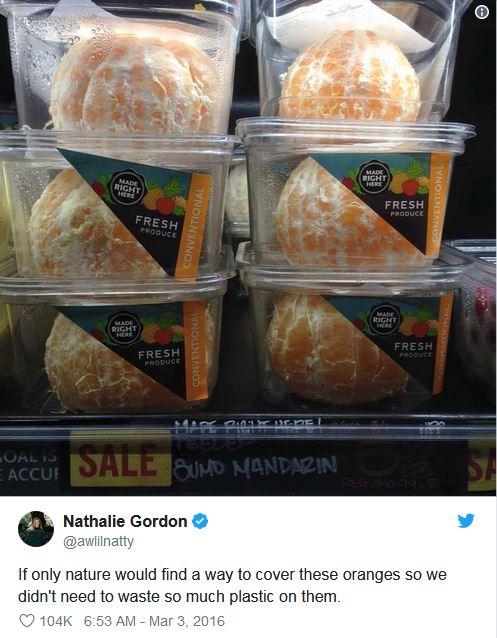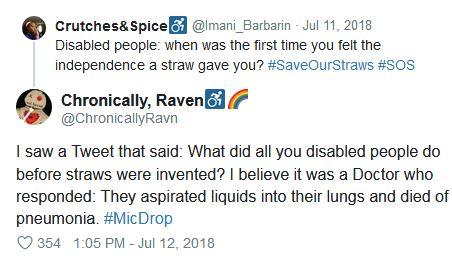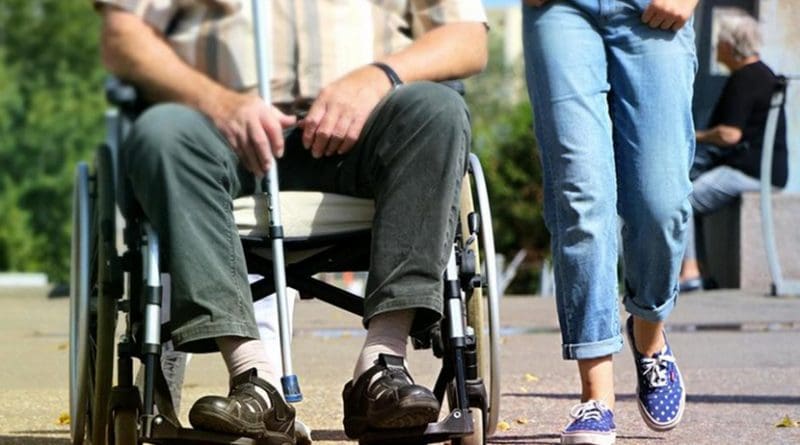How Capitalists – Unlike Environmentalists – Make Life Easier For The Disabled – OpEd
By MISES
By Ryan McMaken*
When I was a kid in the 1980s, Velcro shoes hit the stores in force.
Although Puma first started using the fasteners in 1968, it was not until the 1980s that the shoes became commonplace on the street and at retail outlets.
At the time, many of us mocked the idea. “Who is so lazy he can’t tie shoelaces?” we snickered. We were all sure we were quite superior in our willingness to tie our own shoelaces.
Years later, I noticed that quite a few elderly people — and others with reduced mobility or disabilities such as severe arthritis or cerebral palsy, often wore shoes fastened with Velcro. At that point, my playground cleverness didn’t seem quite so clever anymore.
Velcro shoes, of course, aren’t the only product that might strike us as only for lazy people.
The Huffington Post has mocked tomato slicers and corn “kernelers,” to name just two examples among the plethora of “useless” products marketed by greedy capitalists who will sell anything to make a buck.
Many of these products, however, aren’t pointless at all. While everyday tasks like slicing a tomato may be easy for those of us with normally functioning bodies, that’s not necessarily the case for everyone.
In Vox last year, responding to criticisms of allegedly useless products like the “Sock Slider,” author s.e. smith [sic] writes :
“If I didn’t have that silly piece of plastic with ropes, I wouldn’t be able to put socks on,” says Emily Ladau, a disabled advocate, writer, and speaker with Larsen syndrome, a congenital skeletal disorder. Ladau, who uses a wheelchair for mobility, cannot bend over to put on socks. Without a “sock putter-onner,” as she calls it, she would be forced to rely on the assistance of a personal care attendant (PCA) to put her socks on every morning. “Something that people think is a silly piece of plastic is one of the reasons I don’t need a PCA when I travel.”
Environmentalists to the Disabled: Screw You
The daily hassles faced by the disabled, though, appear to have gone quite unnoticed by environmentalists who have taken to attacking useless products as not only silly, but as morally objectionable. These products, we are told, are environmentally damaging.
One example is a case of Twitter-manufactured outrage over “wasteful” packaging of pre-peeled oranges at Whole Foods. In 2016, an apparently non-disabled woman posted a photo of the oranges on the shelf and complained — with the usual level of tiresome snark we’ve come to expect on Twitter — “If only nature would find a way to cover these oranges so we didn’t need to waste so much plastic on them.”

As of this writing, the comment has over 104,000 likes, and Whole Foods eventually responded, saying “Definitely our mistake. These have been pulled. We hear you, and we will leave them in their natural packaging: the peel.”
That comment received over 750 likes.
What received far fewer likes was a comment from another user, who wrote:
I’m so sorry you’ve decided to do that. I have rheumatoid disease and it’s often impossible to peel an orange.
This, however, was apparently not very convincing to the Environmental Justice Warriors. One dismissively told the woman claiming to have rheumatoid disease to buy an orange peeler, which earned the response “If I could handle that, I could handle an orange. :) It’s really no different from baby carrots in a bag or getting a pizza delivery.” To that, the Enlightened Environmentalist essentially responded “tough luck, there’s too much plastic in the ocean.”
Another environmentalist posted in response to the photo of the pre-peeled oranges:
Fu—ing hell. That makes me unbelievably angry actually. Talk about necessarily contributing to plastic taking over the planet.
When confronted with the idea that “not everyone is physically able to peel an orange,” she retorted “You know, as well as i do, that that is NOT who that is marketed towards.”

By this way of thinking, products that help the disabled are only to be tolerated if their packaging is emblazoned with phrases like “great for cripples!” or “designed for invalids!” All other products that aren’t obviously aids for disabled people shall be mocked as “useless,” and “wasteful” or perhaps banned under force of law.
The environmentalists’ war against the disabled perhaps reached a fever pitch in 2018 when activists throughout the wealthy West began demanding that small business remove all plastic straws from their stores, and that governments even outlaw them.
Some advocates for the disabled noted that plastic straws as essential in allowing many disabled people to enjoy the products and services many other people take for granted. One of these advocates, Alice Wong, explained at eater.com:
Plastic is seen as cheap, “anti-luxury,” wasteful, and harmful to the environment. All true. Plastic is also an essential part of my health and wellness. With my neuromuscular disability, plastic straws are necessary tools for my hydration and nutrition.
This argument didn’t get much of a better hearing than the orange-peel argument. Many social media readers suggested that disabled people should just carry their own straws everywhere. And after all, what’s the big deal? What did disabled people do before straws anyway?

Entrepreneurs vs. Consumers
There are many unpleasant lessons we could learn from these exchanges about the problems that come with being smug and self-centered.
But as this is an economics site, I’d like to focus here on what the “useless products” debate illustrates about the difference between consumers and entrepreneurs.
The lack of sensitivity we encounter with the anti-plastic environmentalists isn’t only a product of a single-minded ideology. It’s also the result of the narrow-mindedness that comes from thinking primarily as a consumer and lacking the broader mindset of an entrepreneur.
For example, in order to consume, one needs to think only in terms of himself and others like him. “I don’t need a tomato slicer,” the thinking goes, “so it’s safe to say that no one else needs one either.”
The entrepreneur, on the other hand, approaches things far differently. He (or she) thinks in terms of changing the status quo. The entrepreneur thinks in terms of meeting an unmet need.
Whether or not the entrepreneur thinks explicitly in terms of meeting the needs of disabled people is, of course, completely beside the point. The fact is that many new products created by entrepreneurs end up helping disabled people, and that’s now a common outcome in a marketplace. It’s to be expected in a marketplace where entrepreneurs think constantly in terms of expanding the world of products and services available to a large number of consumers.
So, as the universe of consumer goods expands to include Sock Sliders and tomato peelers and plastic straws, the market also expands to meet the unmet needs of more and more people.
Also irrelevant is the fact that many entrepreneurs and inventors of various products may have no idea of how these products might be used ahead of time. Entrepreneurs are partly in the business of guessing what new products and services people want. But since those products and services don’t exist already in the marketplace, they can’t know for sure.
Some products may, at first, appear to be useless. It may be the inventor of the Sock Slider didn’t set out to invent a “sock-putter-onner” at all. The inventor may have simply been toying around with a variety of different ideas, as is suggested by inventor Simone Giertz:
The true beauty of making useless things [is] this acknowledgment that you don’t always know what the best answer is … It turns off that voice in your head that tells you that you know exactly how the world works.
Giertz is summarizing what many entrepreneurs also ready know: they can’t be sure about “exactly how the world works.” But, they are willing to try to deliver new products and services that the world might be willing to pay for. They often fail to guess properly. But they also sometimes succeed. The question is always this: can I meet an unmet need at a cost below the price people are willing to pay?” When the answer is “yes,” the world often gets new and better products — and many of them improve the lives of the disabled.1
The consumer who wants to ban plastic straws and “useless” products for “lazy” people thinks in an entirely different way. These people already consider themselves experts on what everyone needs. They think they know exactly “how the world works” and they’re itching to pass laws and shame others to make sure the world fits their vision. Rather than expanding the world of new products and services, these consumers want to shrink it — to keep it in line with their personal needs, and to reflect what they themselves consider to be important.
While the consumer thinks “nobody needs that!” the entrepreneur thinks “I wonder if someone needs that.” These are two very different ways of looking at the world. Only one of them helps disabled people live easier lives.
*About the author: Ryan McMaken (@ryanmcmaken) is a senior editor at the Mises Institute. Send him your article submissions for Mises Wire and The Austrian, but read article guidelines first. Ryan has degrees in economics and political science from the University of Colorado, and was the economist for the Colorado Division of Housing from 2009 to 2014. He is the author of Commie Cowboys: The Bourgeoisie and the Nation-State in the Western Genre.
Source: This article was published by the MISES Institute
- 1. It is not my intent to imply that inventors and entrepreneurs are the same thing. There are important distinctions between these two groups in the economy, but both groups do generally share a common desire to expand the range of products available to the public.


The unprovoked wars they support create large numbers of disabled young people